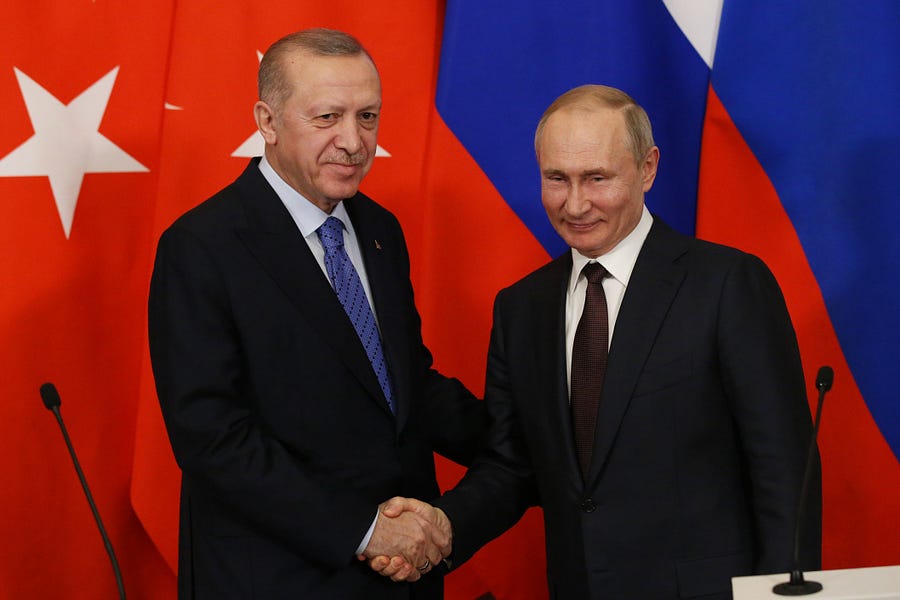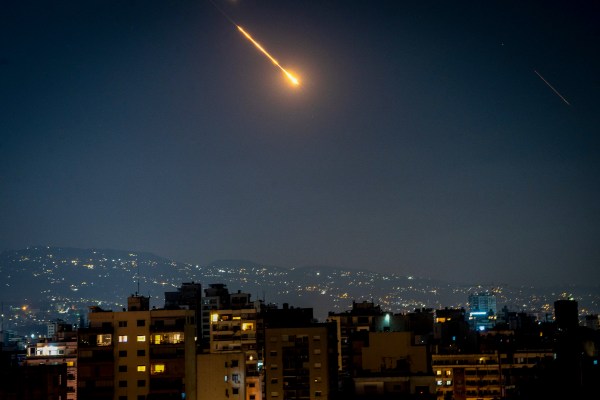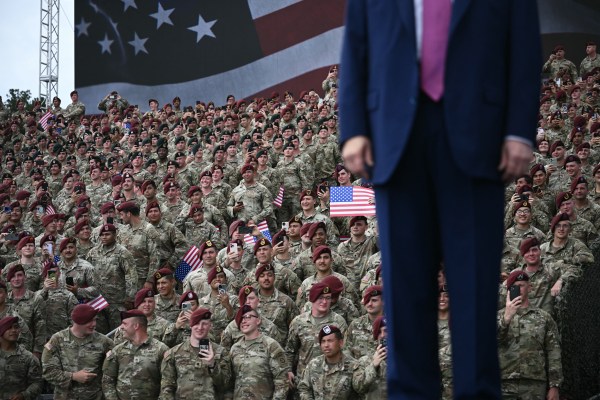With a little over a month left in his term, President Trump implemented long-awaited sanctions on NATO ally Turkey for its purchase and testing of the Russian-manufactured S-400 air and missile defense system. The move follows considerable pressure from Congress, which included in the National Defense Authorization Act of 2021 explicit language to compel the president to impose such penalties. The measure passed both the House and Senate, though Trump has vowed to veto it for other reasons.
The NDAA is not yet law, of course. The State Department grounded these sanctions in the 2017 Countering America’s Adversaries Through Sanctions Act (CAATSA), which pursued punitive measures against Iran, North Korea, and Russia. As such, the department has emphasized that the actions are “not intended to undermine the military capabilities or combat readiness of Turkey or any other U.S. ally,” but rather “to impose costs on Russia in response to its wide range of malign activities” by signaling to other interested countries—like Qatar, Saudi Arabia, and India—that Russia’s main arms-export entity, Rosoboronexport, is not open for business.
The penalties target Turkey’s primary defense procurement entity, called the SSB, and four of its leading officers. The sanctions limit Turkey’s access to the U.S.’s defense industry by prohibiting certain export licenses for goods and technology to SSB. In addition, they restrict U.S. financial investment in Turkey and personally penalize SSB President Ismail Demir and three other officers by imposing visa restrictions and freezing financial assets in the United States.
Ankara’s response to the sanctions has been two-fold. Erdogan’s government and the pro-government media have, unsurprisingly, downplayed their impact as “light,” and have even gone so far as to claim that reduced access to U.S. exports will advance Turkey’s domestic development of high-tech military systems. At the same time, Turkey’s foreign ministry has called on the U.S. to alter “the unjust sanctions” and reverse “this grave mistake,” threatening retaliation if changes aren’t made.
These seemingly contradictory reactions stem, first of all, from the Turkish government’s desire to save face with its populace. If its bold move to purchase S-400 systems might result in damage to Turkey’s defense economy, Erdogan will make every public effort to deny the impact. But Ankara also perceives its transaction and growing partnership with Moscow as emblematic of its defense sovereignty, and resisting U.S. sanctions has morphed into “an issue of national honor,” according to Steven A. Cook, expert on Turkish politics at the Council on Foreign Relations.
And warranted it or not, Erogan considers it to be in his personal interest to maintain a robust air defense system outside of American parameters. “The thing that’s unsaid in all of these discussions is that Erdogan decided to buy the S-400s after the attempted coup in July of 2016. That night the Turkish F-16s bombed certain locations, including the parliament,” Henri Barkey, a Lehigh University scholar, told The Dispatch. “Because Erdogan blames the United States for the coup attempt, the S-400s are really designed to defend his regime—the presidential palace and Ankara itself—against his own Air Force.”
“This is all about Erdogan’s distrust of America and he deeply, deeply believes that America is trying to undo him,” he continued. “The big paradox is a year ago, the Russians killed 36 Turkish soldiers in Syria with one air attack. You’re dealing with a paranoid person, to some extent, and that’s why they’re buying the S-400s.”
Tom Karako, director of the Missile Defense Project at the Center for Strategic and International Studies, marks the 2016 coup d’état attempt as the event that prompted Erdogan to pursue closer ties with Russia. The S-400 purchase was a key component of that goal.
“Erdogan has publicly faulted the United States and accused the United States of somehow being behind the coup attempt of 2016,” Karako told The Dispatch. “Whatever else is true, Erdogan showed up in Moscow shaking Putin’s hand shortly thereafter. There is certainly the appearance of a strategic relationship having been formed in that time period between Erdogan and Putin.”
The pro-government Turkish media began pinning blame on the United States almost as soon as the poorly orchestrated coup launched by elements of the Turkish military failed, leaving more than 240 people dead in its wake. With nobody else to blame, Turks peddled in conspiracy theories that the CIA or other elements of the U.S. government planned and carried out the attempt to overthrow Erdogan’s government.
Given Erdogan’s deep-seated mistrust of the U.S. government as a strategic defense partner—and given the number of S-400 systems already in the country—the implementation of CAATSA sanctions against Turkey this late in the game is unlikely to “resolve the S-400 problem,” in the words of Secretary of State Pompeo. “The Turks paid $2.4 billion for these things. They could send them back to Russia, but they’d be out of $2.4 billion. This is not Amazon—you can’t get a refund,” Barkey said.
The situation illuminates the broader problems between the U.S. and Turkey and calls into question Turkey’s place and value within NATO. In its adoption of a system outside of the alliance, Turkey effectively inhibits the intra-NATO collaboration of air defenses. “By going the route of the S-400, as opposed to something that could be plugged into the NATO air defense architecture, [it] hurts the alliance more broadly,” Karako said.
The United States booted Turkey from its F-35 joint strike fighter program in July 2019 over its acquisition of the S-400 system, for example, issuing a statement explaining that “The F-35 cannot coexist with a Russian intelligence collection platform that will be used to learn about its advanced capabilities.”
This maneuver by Washington likely dealt a greater blow to Ankara than the CAATSA sanctions, as it deprived the Turks of one of the world’s most advanced combat-ready stealth aircrafts.
“Turkey was not only going to buy 100 F-35s, but was also a part of the manufacturing, refurbishment, and maintenance processes of large numbers of F-35s that were going to be delivered to European countries,” Barkey explained. “Turkey was going to be a hub for F-35 maintenance, so having a very sophisticated Russian missile system with a sophisticated radar system had the potential of compromising the F-35 before the F-35 was integrated. The Turks were told that they would lose the F-35 and still went ahead with the purchase.”
And Ankara wasn’t without other options—the United States offered Turkey access to its MIM-104 Patriot surface-to-air missile system on more than one occasion, extending better terms than those offered by the Russians but unwilling to transfer critical air defense technology.
“The United States and NATO allies have sought every which way to convince Turkey that buying the S-400 would compromise U.S./NATO security. Turkish leaders would not budge,” Cook told The Dispatch. “Despite what the Turks claim, the U.S. offered to sell Turkey Patriots, but Ankara demanded too much in terms of technology offsets. The United States does not share the kind of technology the Turks were demanding with many other countries, including NATO allies.”
“Spanish, Dutch, and American Patriot batteries have been protecting parts of Turkey through rotational deployments, so Patriots have been good enough for Turkey when someone else is paying for it,” said Karako.
Because Erdogan is unlikely to reverse course on the S-400 issue (or on its strengthening defense ties with Moscow), Trump’s rollout of sanctions under CAATSA was a largely symbolic step.
“The sanctions are valuable because they signal that Turkey is no longer immune to the consequences of its actions,” Michael Rubin, expert on Turkey at American Enterprise Institute, told The Dispatch.
“The S-400 controversy is just one of a long list of issues that divide the United States and Turkey,” said Cook. “These include: Turkey’s unwillingness to join the battlefield to confront the Islamic State directly; attacks on American allies in Syria; support for Hamas; Turkish efforts to stir up trouble in Jerusalem; efforts to undermine the stability of Egypt, an American security partner; Ankara’s assistance to Iran in the evasion of U.N. sanctions; the detention of American citizens in Turkey; the arrests of foreign service national employees of the U.S. Embassy; Ankara’s aggressive posture in the Aegean and the Eastern Mediterranean; human rights violations; and allegations that the United States supported the failed 2016 coup d’état.”
“The purpose of the sanctions is to tell the Turks enough is enough, because the number of that the United States and the Turks are now divergent on—like Northern Syria, Iraq, Libya, the Eastern Mediterranean—has Congress fed up with Turkish behaviors,” Barkey added.







Please note that we at The Dispatch hold ourselves, our work, and our commenters to a higher standard than other places on the internet. We welcome comments that foster genuine debate or discussion—including comments critical of us or our work—but responses that include ad hominem attacks on fellow Dispatch members or are intended to stoke fear and anger may be moderated.
With your membership, you only have the ability to comment on The Morning Dispatch articles. Consider upgrading to join the conversation everywhere.